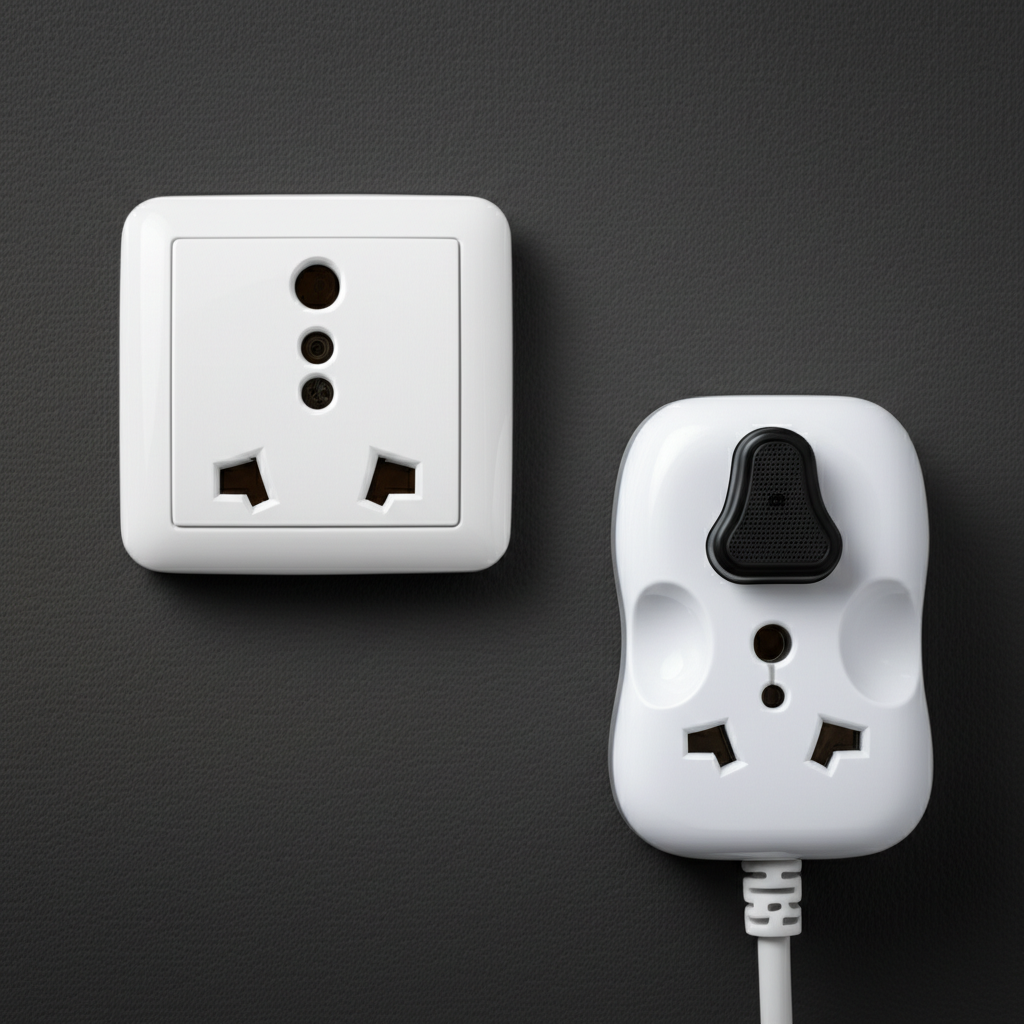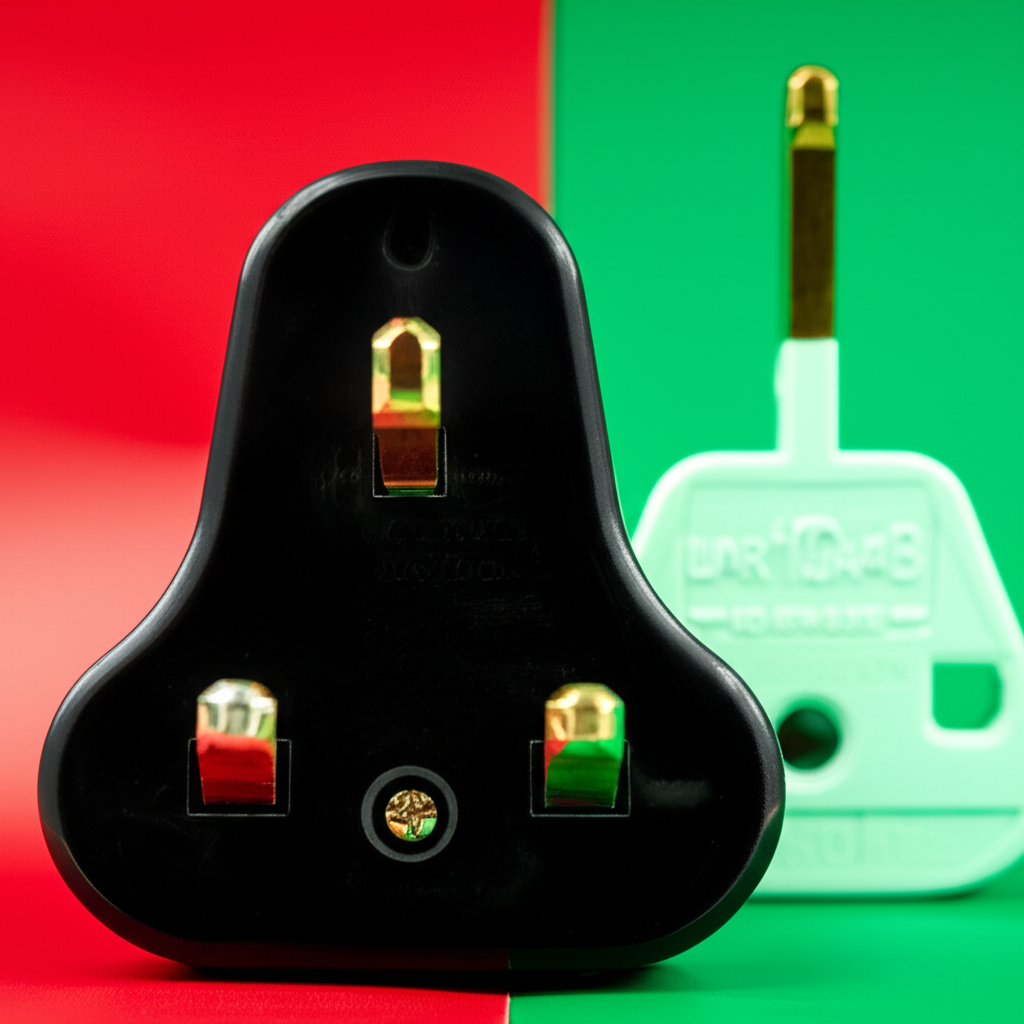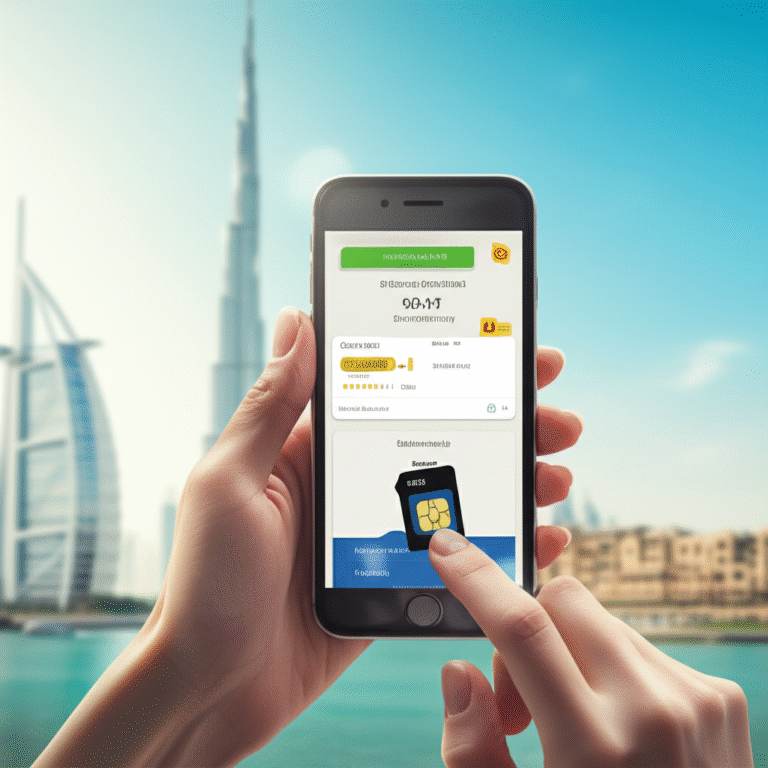Dubai uses Type G plugs, the same as the UK. If you’re traveling to or moving to Dubai, you’ll need adapters for your electronics. This guide will help you understand Dubai’s plug types and ensure you stay connected.
What Plug Type in Dubai: Your Essential Connection Guide
Arriving in Dubai, excited to explore this dazzling city, but then you realize your phone charger won’t fit the wall socket? It’s a common little hiccup for travelers and new residents alike! Understanding the local plug type is super important to keep your devices powered up without any last-minute dashes to the shops. Don’t worry, it’s much simpler than it sounds. I’m Neritan Kodra, and I’m here to make sure your telecom and electrical needs in Dubai are as smooth as the desert breeze. Let’s dive into everything you need to know about plug types in Dubai so you can stay connected from day one.
Contents
- 1 Understanding Dubai’s Electrical Sockets: The Type G Standard
- 2 Why Type G Plugs? A Look at Dubai’s Electrical System
- 3 What You Need: Adapters and Converters
- 4 Where to Buy Adapters and Essential Electronics in Dubai
- 5 Tips for Staying Connected: Beyond the Plug Type
- 6 Voltage and Appliance Compatibility Table
- 7 Common Pitfalls and How to Avoid Them
- 8 Frequently Asked Questions (FAQs)
- 9 Conclusion: Stay Powered and Connected in Dubai
Understanding Dubai’s Electrical Sockets: The Type G Standard
Dubai, much like the United Kingdom, uses the Type G electrical socket. This is characterized by its three rectangular pins arranged in a triangular pattern: one vertical pin at the top and two horizontal pins below it. This design is a safety feature, as the top pin is typically connected to the earth wire, providing an extra layer of protection.
The standard voltage in the UAE, including Dubai, is 230V with a frequency of 50Hz. This is very similar to many other countries, but it’s always a good idea to double-check your electronic devices to ensure they are compatible or can handle this voltage range. Most modern electronics, like smartphones, laptops, and tablets, come with universal power adapters that can handle a wide range of voltages (often labeled as “100-240V, 50/60Hz”). However, older or simpler devices might not have this capability.
Knowing this will save you from the frustration of having devices that you can’t plug in. It’s one of those small but crucial details that make your arrival and stay in Dubai much more comfortable.
Why Type G Plugs? A Look at Dubai’s Electrical System

Dubai’s adoption of the Type G plug system is largely due to its historical ties and the influence of British standards. The UAE’s electrical infrastructure has been developed with safety and standardization in mind, aligning with systems used in countries that have historically had strong trading and diplomatic relationships with the region.
The Type G plug is considered one of the safest plug types in the world. The presence of the fused earth pin is a significant safety advantage. This fused pin ensures that the appliance is properly earthed, protecting users from electric shock. Additionally, the shutters on the socket openings, which only open when the earth pin is inserted, prevent accidental contact with live electrical contacts.
This focus on safety is paramount in a rapidly developing city like Dubai, where high-rise buildings and modern infrastructure are the norm. The government and utility providers, like DEWA (Dubai Electricity & Water Authority), ensure that electrical standards meet international benchmarks.
What You Need: Adapters and Converters
If your home country uses a different plug type, you’ll need an adapter. An adapter is a simple device that allows your plug to fit into the Dubai socket. It does not change the voltage.
For example, if you’re coming from the United States (Type A or B plugs) or mainland Europe (Type C or F plugs), you will definitely need a Type G adapter. These are widely available in Dubai at electronics stores, supermarkets, and even duty-free shops at the airport.
Important Distinction: Adapters vs. Converters
It’s crucial to understand the difference between an adapter and a voltage converter:
- Adapter: Changes the physical shape of the plug to fit the socket. It does NOT change the voltage.
- Converter: Changes the voltage from one level to another (e.g., from 110V to 230V). These are less common now due to the prevalence of dual-voltage electronics.
As mentioned, most modern electronics are dual-voltage. However, for older appliances like hair dryers, curling irons, or electric shavers that are not dual-voltage, you might need a voltage converter in addition to an adapter. Using a non-dual-voltage appliance with a converter can be risky and may damage the appliance or pose a fire hazard. Always check the label on your device for voltage information.
Where to Buy Adapters and Essential Electronics in Dubai

If you forget to pack adapters or need to buy new electronics, Dubai offers plenty of options:
Electronics Stores:
Major electronics retailers like Sharaf DG, Jumbo Electronics, and Virgin Megastore have a wide selection of travel adapters, universal adapters, and all sorts of gadgets. These are reliable places to get good quality products.
Supermarkets and Hypermarkets:
Larger supermarkets such as Carrefour and Lulu Hypermarket often have a dedicated section for travel accessories, including plug adapters. They are convenient and usually offer competitive prices.
Airport Duty-Free:
For last-minute needs, airport duty-free shops are a good option, though prices might be slightly higher.
Online Retailers:
If you’re already in Dubai and have some time, online platforms like Amazon.ae or Noon.com offer a vast range of adapters and electronics, often with quick delivery.
Tips for Staying Connected: Beyond the Plug Type
While getting the right plug is fundamental, staying connected in Dubai involves more than just powering your devices. As your telecom guide, I want to ensure you’re fully equipped.
SIM Cards and Mobile Plans:
Upon arrival, you’ll likely want a local SIM card for easy communication and data access. The two main providers in Dubai are Etisalat and du.
- Etisalat: Known for its extensive network coverage and often competitive data packages.
- du: Another major player offering a range of mobile and internet services.
You can purchase a SIM card at the airport, at their retail stores, or through authorized resellers. You’ll need your passport and potentially a copy of your visa or Emirates ID.
Checking Your Mobile Balance:
Keeping track of your mobile balance is easy with both providers:
- Etisalat: You can dial 121# or send an SMS with “BAL” to 121.
- du: Dial 135# or send an SMS with “balance” to 124.
These simple codes will help you manage your usage and avoid unexpected charges.
Public Wi-Fi and Wi-Fi Calling:
Dubai offers widespread public Wi-Fi, especially in malls, hotels, and public transport. Many of these require a simple registration process, often linked to your UAE phone number. If your mobile plan allows, Wi-Fi calling can be a cost-effective way to make calls back home when connected to Wi-Fi.
Nol Card for Public Transport:
While not directly related to plug types, if you’re using Dubai’s excellent public transport system (Metro, buses), you’ll need a Nol card. You can get these at any Metro station. It’s a rechargeable smart card that makes travel seamless.
Voltage and Appliance Compatibility Table
Here’s a quick reference to help you understand voltage compatibility:
| Device Type | Typical Voltage | Compatibility with Dubai (230V) | Action Required |
|---|---|---|---|
| Smartphones & Laptops | 100-240V | Yes | Universal adapter may be needed for plug shape. |
| Tablets & Cameras | 100-240V | Yes | Universal adapter may be needed for plug shape. |
| Hair Dryers (Travel/Basic) | 110-120V or 100-240V | Depends on model. | Check label. If 110-120V only, requires a voltage converter and adapter. If 100-240V, only an adapter is needed. |
| Curling Irons/Straighteners | 110-120V or 100-240V | Depends on model. | Check label. If 110-120V only, requires a voltage converter and adapter. If 100-240V, only an adapter is needed. |
| Electric Shavers | 100-240V | Yes | Adapter may be needed for plug shape. Some older models might benefit from a converter if they are not rated for 230V, but this is rare for modern shavers. |
| Small Kitchen Appliances (e.g., toaster) | 110-120V | No (unless dual-voltage) | Requires a voltage converter and adapter. Check appliance wattage carefully for converter suitability. |
Always prioritize checking the device’s label for its voltage and wattage. Websites like the Dubai Electricity & Water Authority (DEWA) provide official information on electrical standards and safety in the Emirate.
Common Pitfalls and How to Avoid Them
Here are a few common mistakes people make and how you can easily avoid them:
- Assuming all your chargers are universal: While most modern chargers are, older or very basic appliances might not be. Always check the label.
- Confusing adapters and converters: Using a simple adapter on a non-dual-voltage appliance can fry it. Make sure you understand what each device does.
- Buying cheap, uncertified adapters: These can be a fire hazard. Stick to reputable brands and retailers.
- Forgetting about other travel needs: Think about your mobile plan, local currency, and transportation options in advance.
Frequently Asked Questions (FAQs)
What is the plug type in Dubai?
Dubai uses Type G plugs, which have three rectangular pins arranged in a triangle. This is the same type of plug used in the UK.
Do I need an adapter for my electronics in Dubai?
Yes, if your country uses a different plug type (like Type A, B, C, or F), you will need a Type G adapter to plug your devices into Dubai’s sockets.
Will my hair dryer work in Dubai?
It depends. If your hair dryer is rated for dual voltage (100-240V), you only need a Type G adapter. If it’s only rated for 110-120V, you will need both a Type G adapter and a voltage converter.
Where can I buy a travel adapter in Dubai?
You can buy travel adapters at electronics stores (like Sharaf DG, Jumbo), hypermarkets (like Carrefour), airport duty-free shops, and online retailers (like Amazon.ae, Noon.com).
What is the voltage in Dubai?
The standard voltage in Dubai is 230V, and the frequency is 50Hz.
Can I use my US laptop charger in Dubai?
Yes, most modern laptop chargers are universal (100-240V). You will only need a Type G adapter for the plug shape.
Are there universal sockets in Dubai?
While the standard is Type G, you might occasionally find multi-universal sockets in newer hotels or some commercial buildings that accept various plug types. However, it’s always best to be prepared with your own adapter.
Conclusion: Stay Powered and Connected in Dubai
Navigating the specifics of electrical plug types might seem like a small detail, but it’s one that can make a big difference in your experience in Dubai. By ensuring you have the correct Type G adapter and understanding the voltage, you can confidently power up all your essential devices. Remember, most modern electronics are designed for global travel, so a simple adapter is often all you need. Beyond the plug, staying connected with a local SIM from Etisalat or du, and managing your mobile balance with easy codes, will further enhance your stay. Dubai is a city that thrives on connection, and with this guide, you’re well-equipped to stay powered, connected, and ready to explore all the wonders it has to offer. Enjoy your time in this incredible city!


